Digital Citizenship Course in Singapore
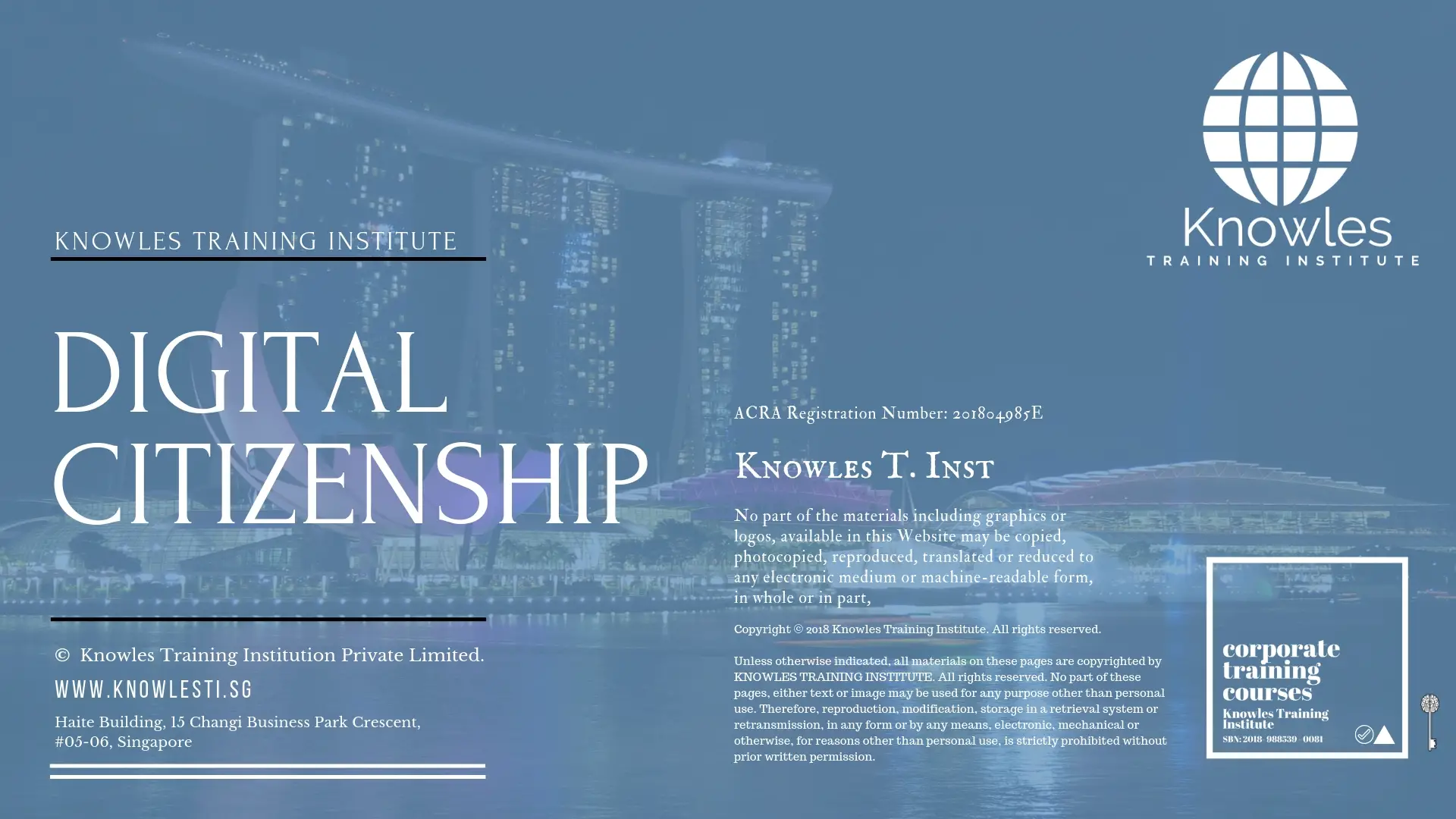
About This Digital Citizenship Training Course
Digital Citizenship Course in Singapore
Anyone who uses digital technologies and the Internet is considered a digital citizen. And with the massive traffic of Internet users, there are certain rules and decorum that should be followed in order to make the digital world a peaceful place. Digital citizens must know how to navigate the Internet with caution.
Who Should Attend This Digital Citizenship Workshop
This Digital Citizenship workshop is ideal for anyone who would like to gain a strong grasp and improve their Digital Citizenship.
All Staff Within An Organisation
Managers
Team Leaders
Executives
Assistants
Officers
Secretaries
Group Size For This Digital Citizenship Training Program
The ideal group size for this Digital Citizenship course is:
Minimum: 5 Participants
Maximum: 15 Participants
Course Duration For This Digital Citizenship Skills Course
The duration of this Digital Citizenship workshop is 2 full days. Knowles Training Institute will also be able to contextualised this workshop according to different durations; 3 full days, 1 day, half day, 90 minutes and 60 minutes.
2 Full Days
9 a.m to 5 p.m
Digital Citizenship Course Benefits
Below is the list of course benefits of our Digital Citizenship course
- Understand what is digital citizenship and how to act accordingly online
- Know the importance of Digital Citizenship safety and what dangers could be met
- Have the ability to protect and maintain secrecy online
- Apply ethical online ownership and the acknowledgement of online work and property
- Gain morally approved ways to actively interact with others in the internet
- Learn about scams and ways hackers can get your information
- Grasp the methods of protecting your digital citizenship from phishing attacks
- Effectively use the Internet and how to effectively protect your own content online
- Be equipped with the strategies on how to ensure that your online profile is safe
- Be digital civil and know how to filter online attacks
- Develop ethical standards when using of online information
- Take advantage of the good things that the online world provides
Digital Citizenship Course Objectives
Below is the list of course objectives of our Digital Citizenship course
- Illustrate what is digital citizenship and how to act accordingly online
- Examine the necessity for safety when communicating online and what attacks can occur
- Orient the need to protect and maintain secrecy online
- Showcase the facts about intellectual rights on the internet
- Explore the ways to actively interact with others in the internet
- Observe the problems of frauds and online deception that could breach privacy online
- List the ways to protect digital citizenship from phishing attacks
- Teach the different way to protect ones online content
- Formulate strategies on how to ensure that your online profile is safe
- Model the ways to act online and how to deal with online assaults
- Describe the effective usage of online information without abuse
- Illustrate how the internet can be used for good and the benefit of everyone
Course Content For This Digital Citizenship Training Course
Below is the list of course content of our Digital Citizenship training course
- What is Digital Citizenship?
- Digital citizens all belong to the digital community, and they need to adhere to the standards and rules established. There are nine elements that people encounter when they interact online. These interactions encompass what occurs in digital citizenship.
- Engaging with Others
- Digital media enables us to communicate, collaborate, learn, and share online. When engaging with others online, it is essential to behave as though they are in the room with you.
- It’s a Moving Target
- Our digital lives are constantly evolving. The changes in technology are rapidly occurring, and our lives are shifting at a high pace. Over the past few years, technology has altered the style we work, shop, and communicate.
- Belonging to a Community
- The ability to communicate is easy, inexpensive, and instantaneous in the digital world. Distance no longer restricts our communication. Because communication is essential to any community, the digital world can help improve communities.
- Build It Up
- Your tone will define your digital presence. No matter the content that you produce or communication you make, it is vital that you attempt to remain positive. Build up your community, and avoid negativity.
- Real World Influences
- Real-world influences are beneficial when examining your digital citizenship. If you are a good citizen in real life, you will be a good digital citizen. Contemplate what makes a good public citizen.
- Use Technology Appropriately
- Technology needs to be utilised responsibly. All activity needs to be both legal and ethical. How you use technology will depend on where you are and what you are doing. For instance, it is unethical to download and play games on your computer at work, but it is absolutely acceptable to do so at home.
- The Golden Rule
- Treating others the way that you would like to be treated is the golden rule. This should be applied in all areas of life, including your digital life. You need to treat yourself and others with respect.
- Digital Footprints
- Every time you access the Internet, you leave a digital footprint. Digital footprints are a history of everything you do online. They come from what you share and data collected on your sites visited, and they do not go away.
- Personal and Work Lives
- The digital world has clouded the line between our personal and professional lives; they are much thinner and easier to cross. Social networks, specifically, allow us to include colleagues and coworkers in our own lives. While networks can help cultivate deeper relationships with coworkers and give them a glimpse of your life outside of work, it can also cause problems.
- Stop and Think Before You Post
- In the digital world, it is easy to share something that could easily be misinterpreted accidentally. Sharing videos, pictures, and thoughts are so simple that many people do not consider about what they are doing. Careers and relationships could be preserved if people would simply stop and think before they post.
- Do Not Overshare
- One of the main problems in the digital realm is oversharing. First, not everything is intended to be shared. You are better off keeping personal information private.
- Personal Branding
- The first step in personal branding is defining your brand. These questions will define your brand and help you market yourself. When you create your own brand, you must remain consistent with your shares and posts.
- Be Yourself
- Whether you are online or offline, it is crucial that you be yourself. People are attracted to sincerity; so only communicate something if you genuinely believe it. People who come across as insincere or fake are not easily trusted.
- Social Networking
- Social networking is imperative to your branding. When done correctly, social networks are helpful tools that expand your community. When not used accurately, social networking can have lasting, damaging effects.
- If You Share It, Expect Everyone to See It
- When you share something online, expect everyone to see it. You must come to the realisation that there is no such thing as privacy online. Do not be fooled by the ever-changing privacy settings that social networks have.
- Introduce Colleagues
- Networking requires to give and take. While you network to meet new people, you also need to facilitate meetings between colleagues as well. If you know two people who would benefit from meeting each other, introduce them.
- Volunteer to Help Others
- Helping others and volunteering is good for people in your network and you. Helping others does not have to be complicated or time-consuming. Simply find out who needs a favour and offer your services.
- Blog
- “Start a blog” is advice commonly given to professionals who want to expand their networks. Blogs are only effective when they are done correctly. It is better not to start a blog than to begin one that you have no interest in maintaining.
- Guard Your Reputation
- Reputations are made or destroyed online. You need to guard your reputation carefully because it is valuable. If your status becomes damaged for any reason, you need to defend it. Address any misinterpretations other people make, and issue apologies if required.
- Don’t Trust Anyone You Don’t Know
- The Internet is just like any other place. It is possible to meet wonderful people and uncover useful contact online. There are, however, many malicious people who are looking for opportunities to steal and exploit personal information.
- Enable 2-Step Verification Processes
- Password accounts are commonly hacked, and you do not have to be a computer whiz to hack emails. In fact, there are numerous online tutorials on how to hack an email account. There are precautions that you can take to limit your risk online.
- Public Wi-Fi
- Public Wi-Fi is great for the person on the go. You must, however, take further precautions when using public Wi-Fi. This type of connection does not have the same security that your personal Internet account does because there are numerous users.
- Public Computers
- With the popularity of laptops and smartphones, it is often possible to avoid using public computers. There may be occasions, however, when you find yourself using public computers.
- Email and Attachments
- We utilise email for work and personal reasons every day. Emails and their attachments, however, are frequently used to hack computers. Just because you receive an email from someone you know, does not mean that the email is safe.
- Password Rules
- Hacking often occurs because people choose the wrong passwords. Using the same password for everything, using simple passwords, and keeping the same passwords for years will put your account at risk. There are a few key points to choosing strong passwords.
- Back Up Your Files
- It is essential to back up your files regularly. You never know when a computer will crash, or if your computer will be stolen. Backing up data protects your information. How often you back up your files will depend on how regularly you use your computer.
- Update Your Software
- It is essential to update your software frequently. Software companies often update their programs to fix bugs and address security threats. If you do not update your software periodically, you risk your applications running slower than usual and contracting malware and viruses.
- See It, Report It
- Part of being a good citizen is addressing problems when you see them. If you see behaviour that violates any user agreement or is illegal, you have to report it. There are different channels for reporting violations.
- Bullying and Harassment
- Bullying and harassment is a growing problem online. Unfortunately, it can escalate to violence offline. Hopefully, you never experience this problem. If you or anyone you know becomes the victim of bullying or harassment, however, you need to know how to handle the situation.
- Trolling
- Internet trolls are the bane of most digital citizens. Troll is a slang term for someone who makes remarks solely to cause problems. They are not people who simply disagree or share complaints.
- Shared Something You Shouldn’t Have?
- Even careful people will occasionally post things that they regret. The first thing you must do is remove the post immediately. The faster you remove the post, the less likely it is to spread online.
- Respect and Tone
- It is essential to try to be respectful when communicating. This notion is addressed in elementary school, but many adults need reminders. Remember that you are talking to a person, not the embodiment of an idea.
- Speak Up, Not Out
- You are entitled to speak up when the occasion arises; this is much more efficient than speaking out. Speaking up is done when there is an issue or problem, and it requires a level head. It is tempting to speak out rather than speak up.
- Topics to Avoid
- Always consider the topics that you discuss online very carefully. If you want to create controversy, bring up the topics: politics, religion, and sex. These topics are all assured to polarise your audience and bring on a tidal wave of biased comments.
- Keep Private Messages Private
- Sometimes private messages make their way into very public settings. It is easy to have complete conversations in the comments of a post. Accidentally hitting reply all when addressing a single person is a mistake that many people have done.
- Educate Yourself
- Technology is ever-changing and evolving. You are likely to observe something new every day that you will not recognise. There is no reason to be embarrassed by your lack of knowledge. Simply ask about new technology or look it up online.
- Information Processing
- It is necessary to exercise critical thinking when you go online. You will read false, misleading, or partially correct information. In fact, a large percentage of information is not accurate.
- Internet Boldnesss
- The Internet makes people bold because it offers some anonymity. It is possible to interact with strangers, and they would not recognise us if we met in the real world. Many experts consider that this type of anonymity is what empowers Internet trolls.
- Permission To Share
- Various people are under the impression that you can use anything on the Internet for any purpose. The fact is that much of the information and media online is copyrighted, which means that you need permission to share. Even if you do not see a copyright, asking someone permission to share pictures, videos, and information is digital etiquette.
Digital Citizenship Value Added Materials
Each participant will receive the following materials for the Digital Citizenship course
Digital Citizenship Learner’s Guide
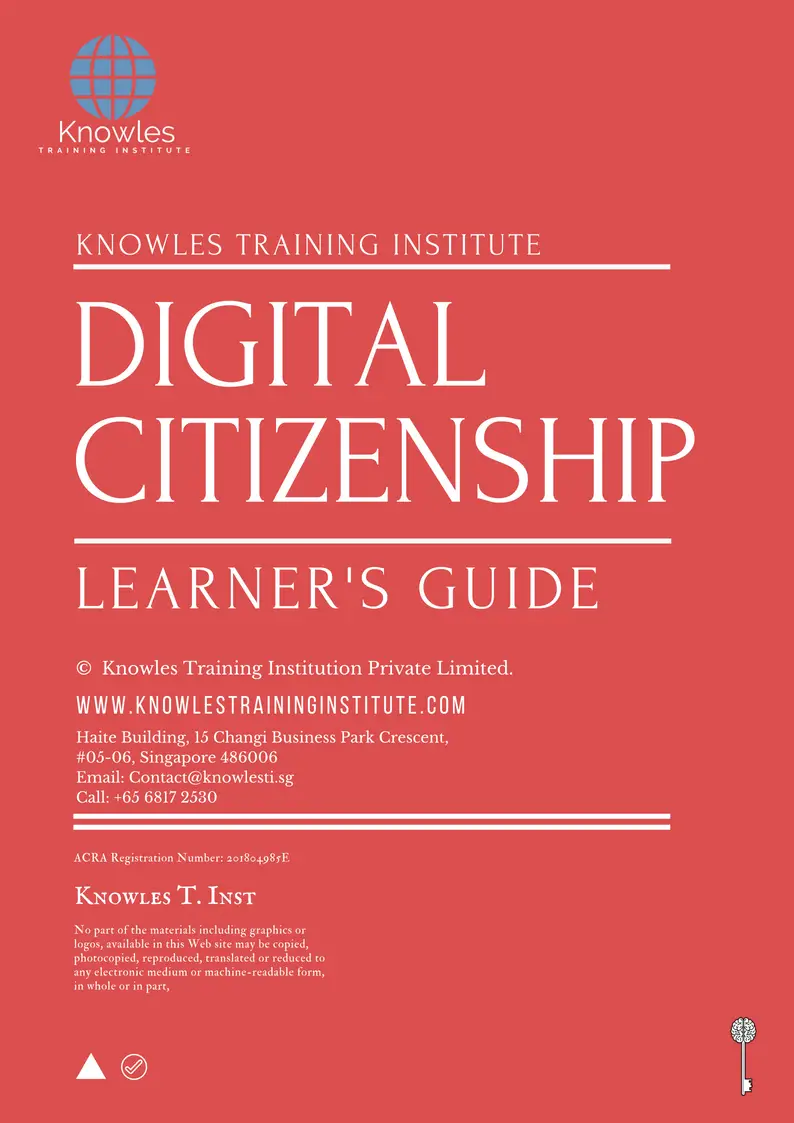
Digital Citizenship Key Takeaways Notes
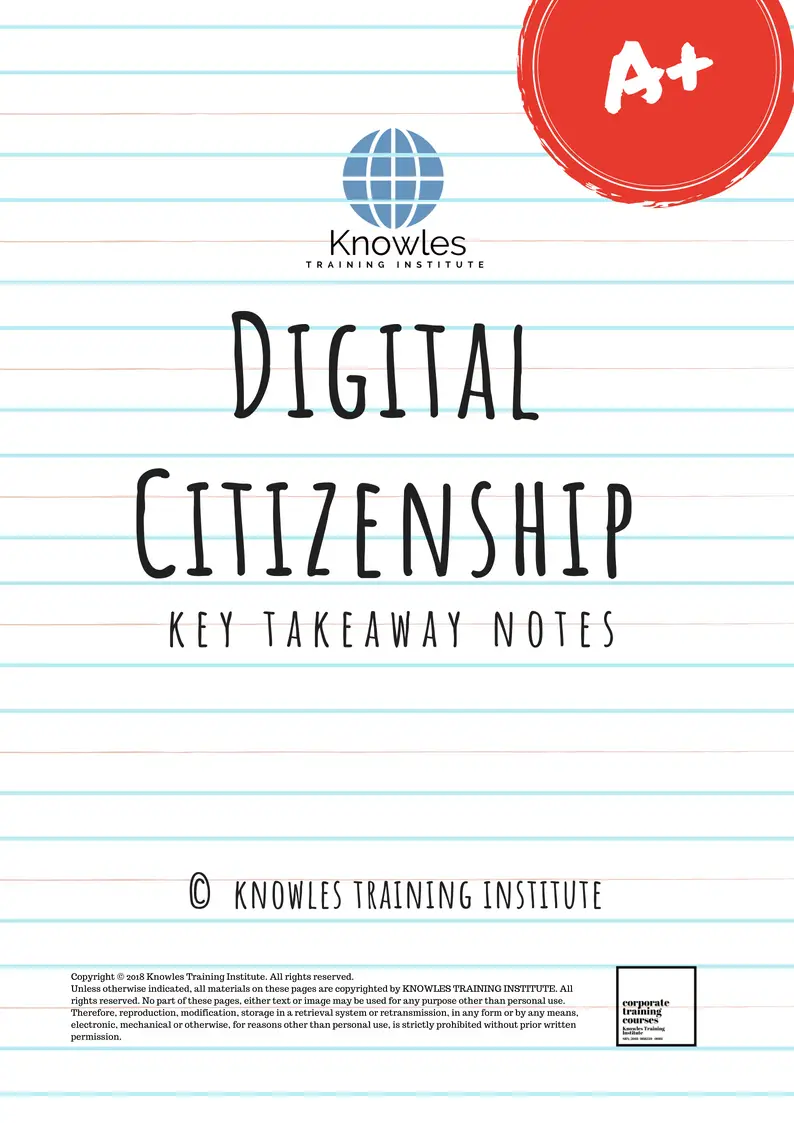
Digital Citizenship Essentials Ebook
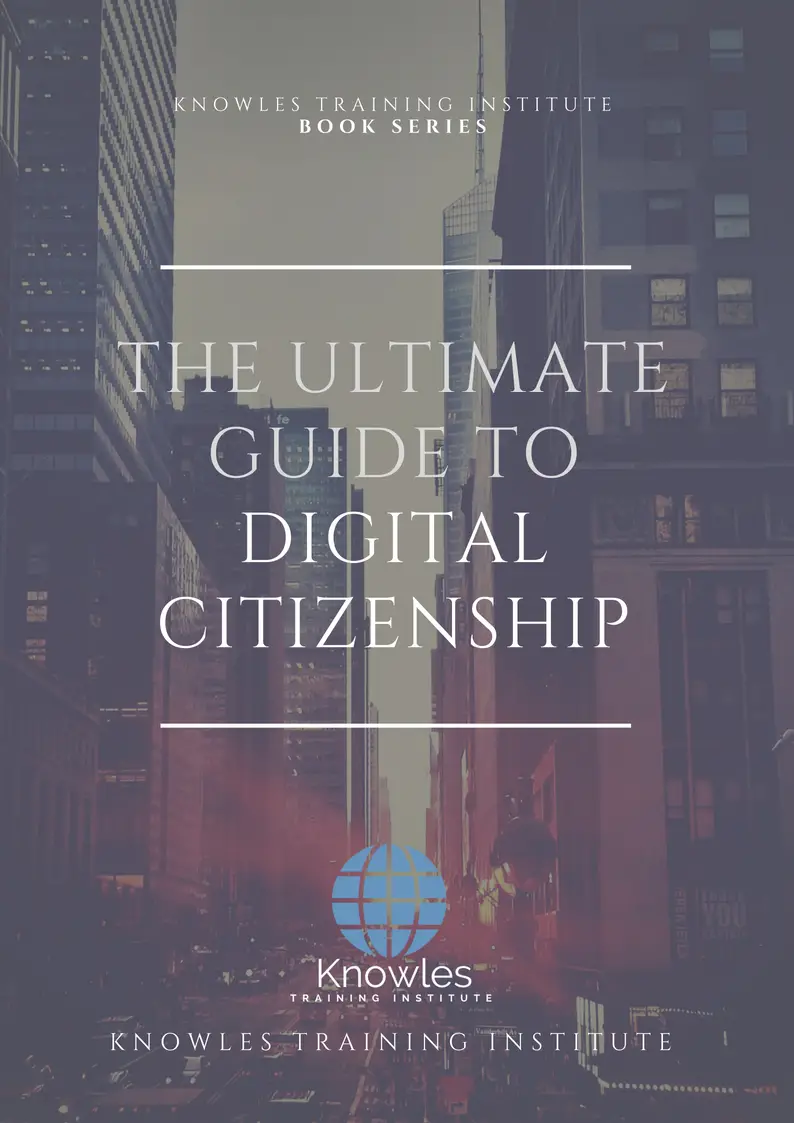
Digital Citizenship Course Handouts
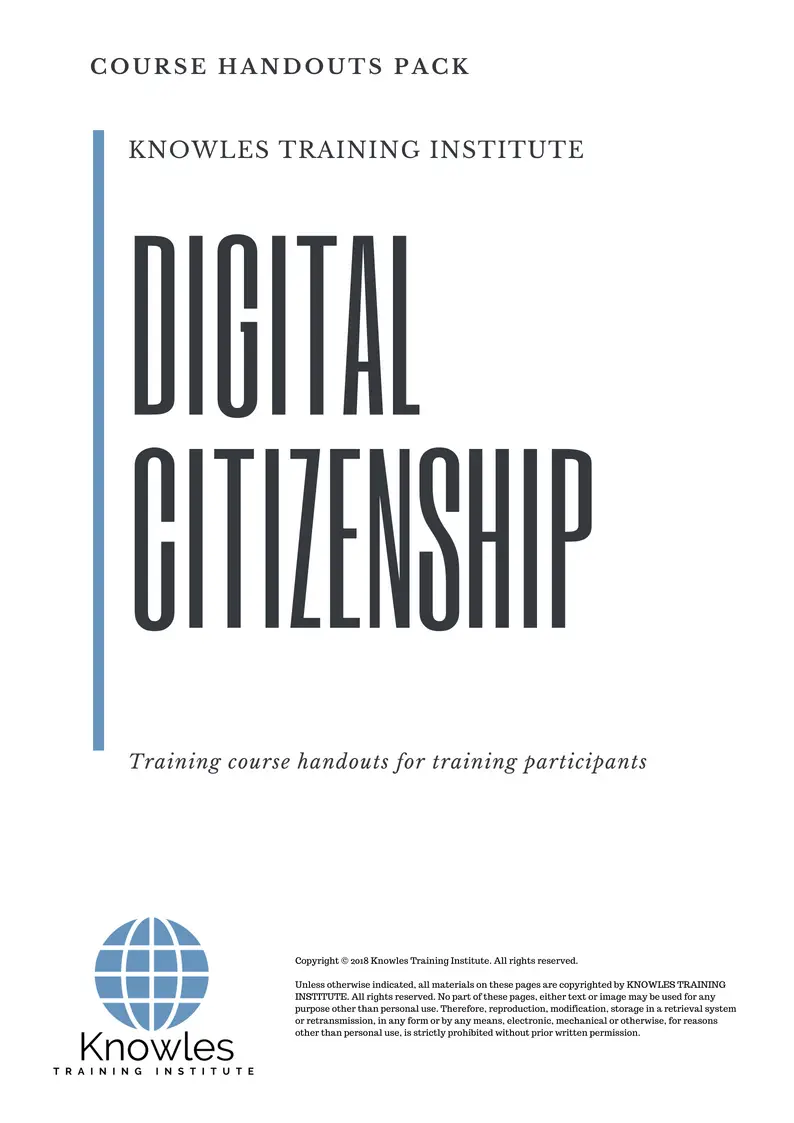
Digital Citizenship 30-Day Action Plan
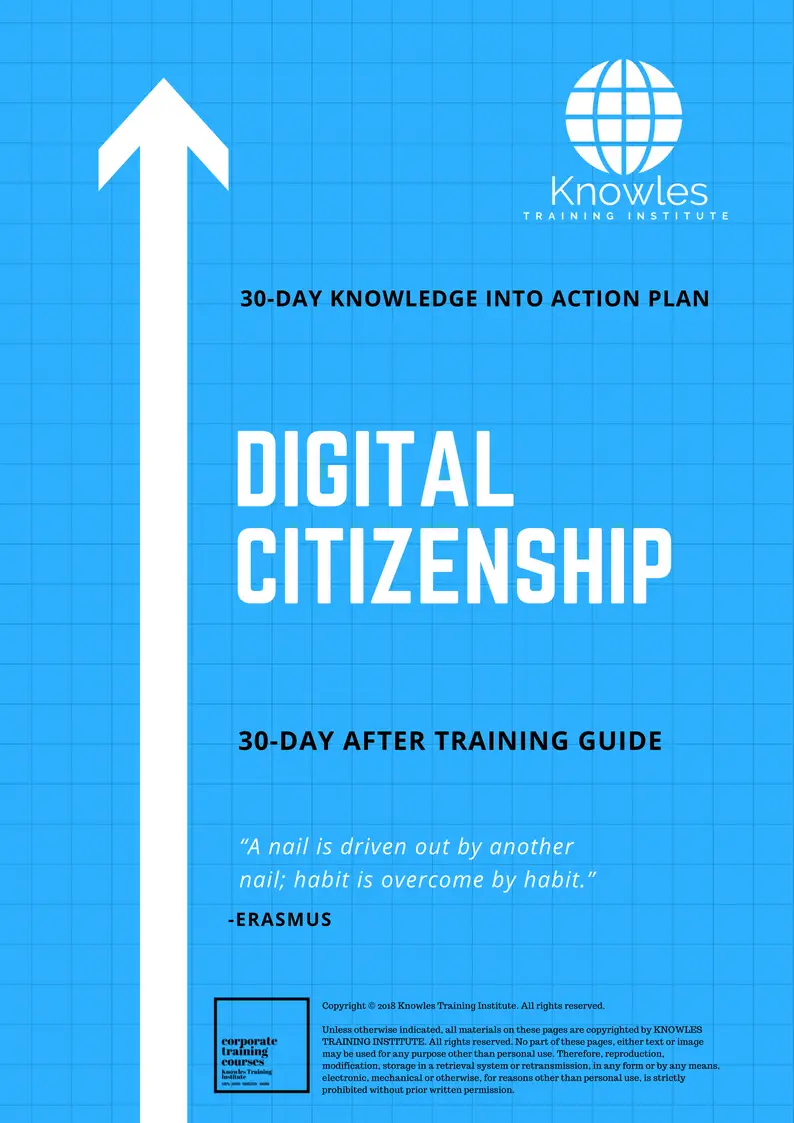
Digital Citizenship MindMaps Pack
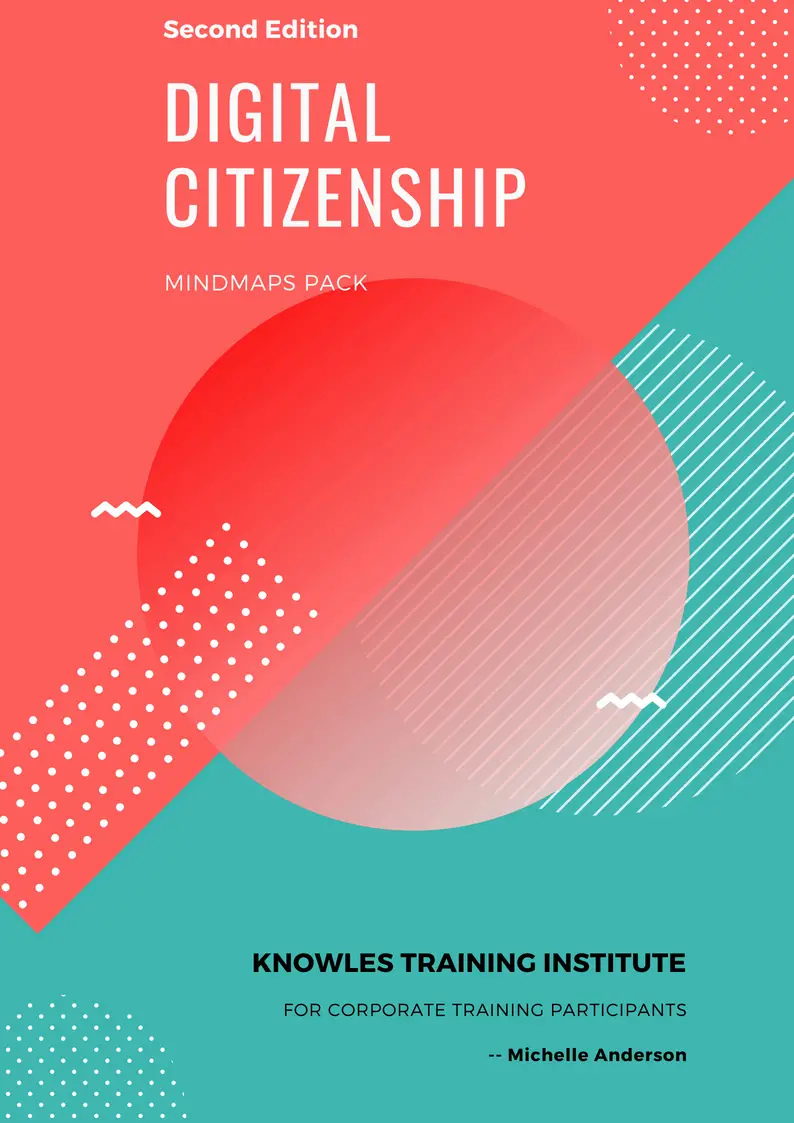
Digital Citizenship PPT Slides Used During Course
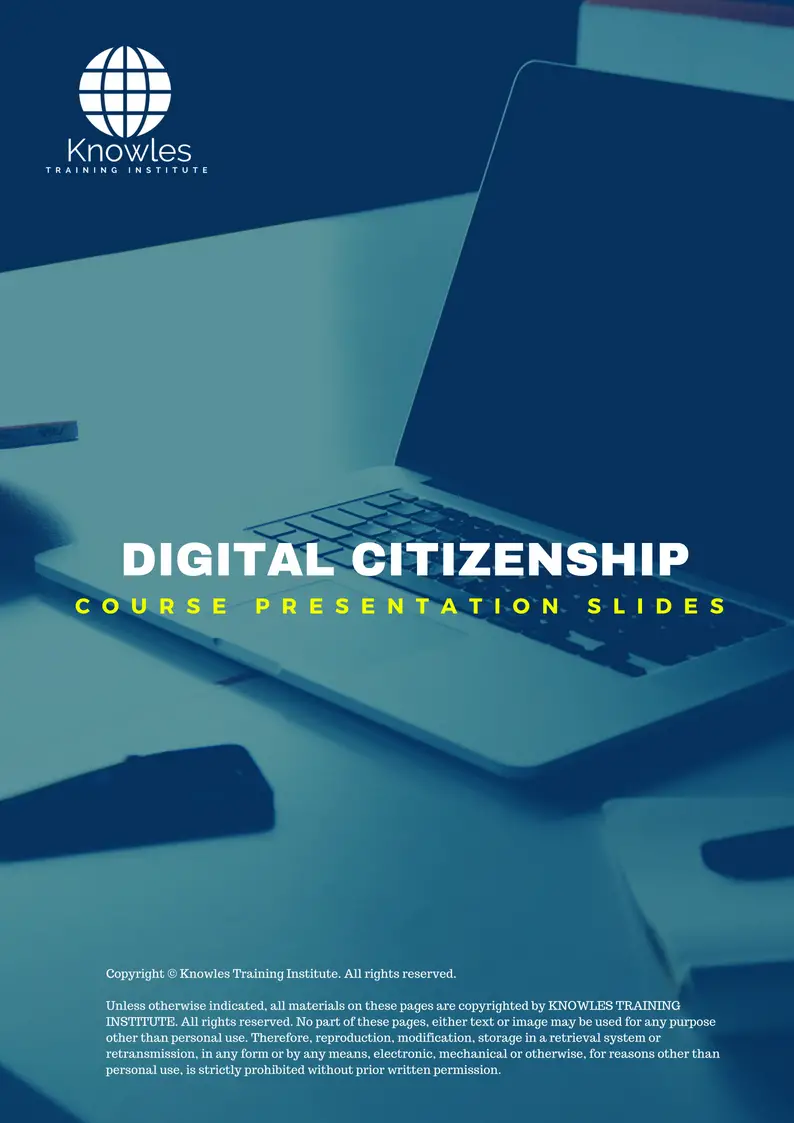
Digital Citizenship Long-Term Memory Flashcards Pack
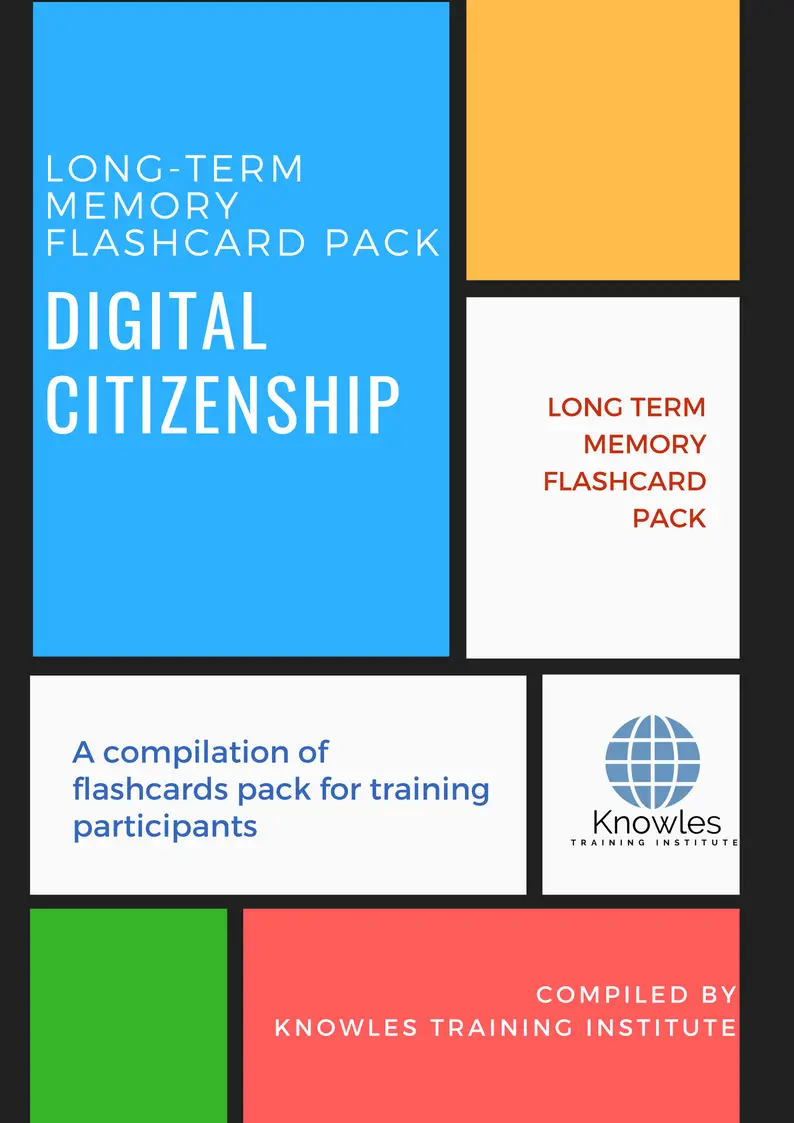
Digital Citizenship E-Learning Course
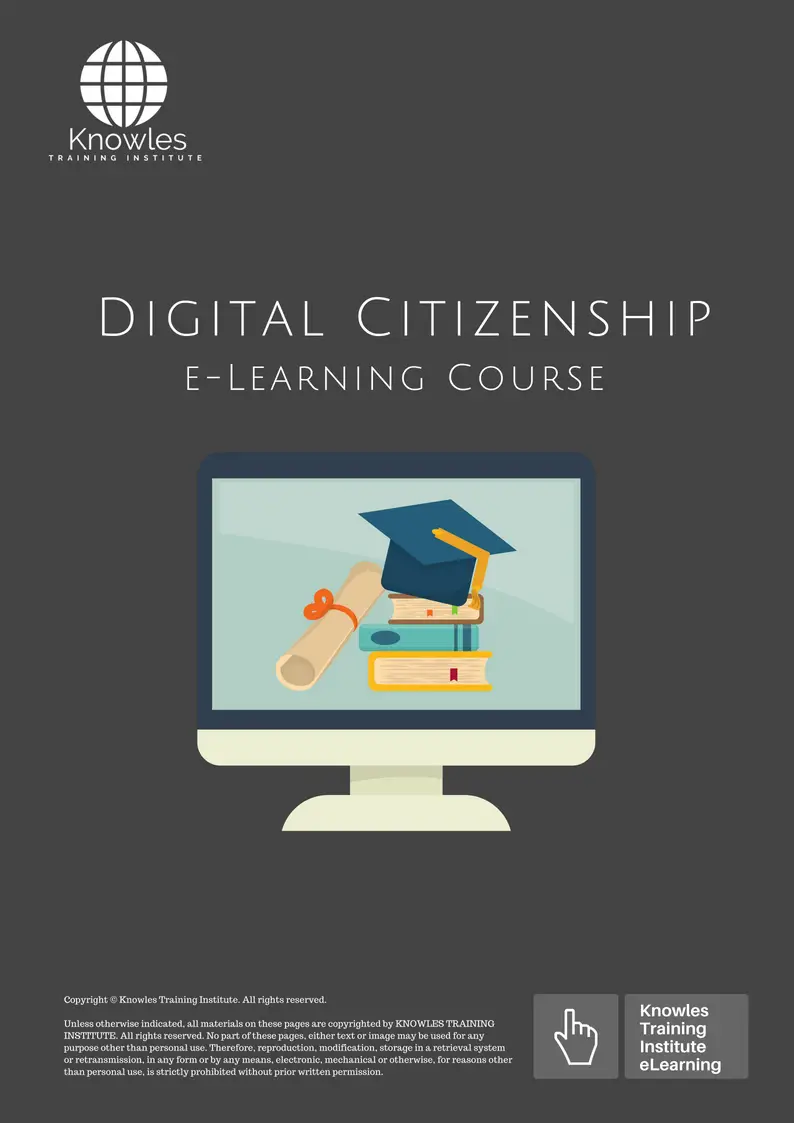
Digital Citizenship Online Video Course
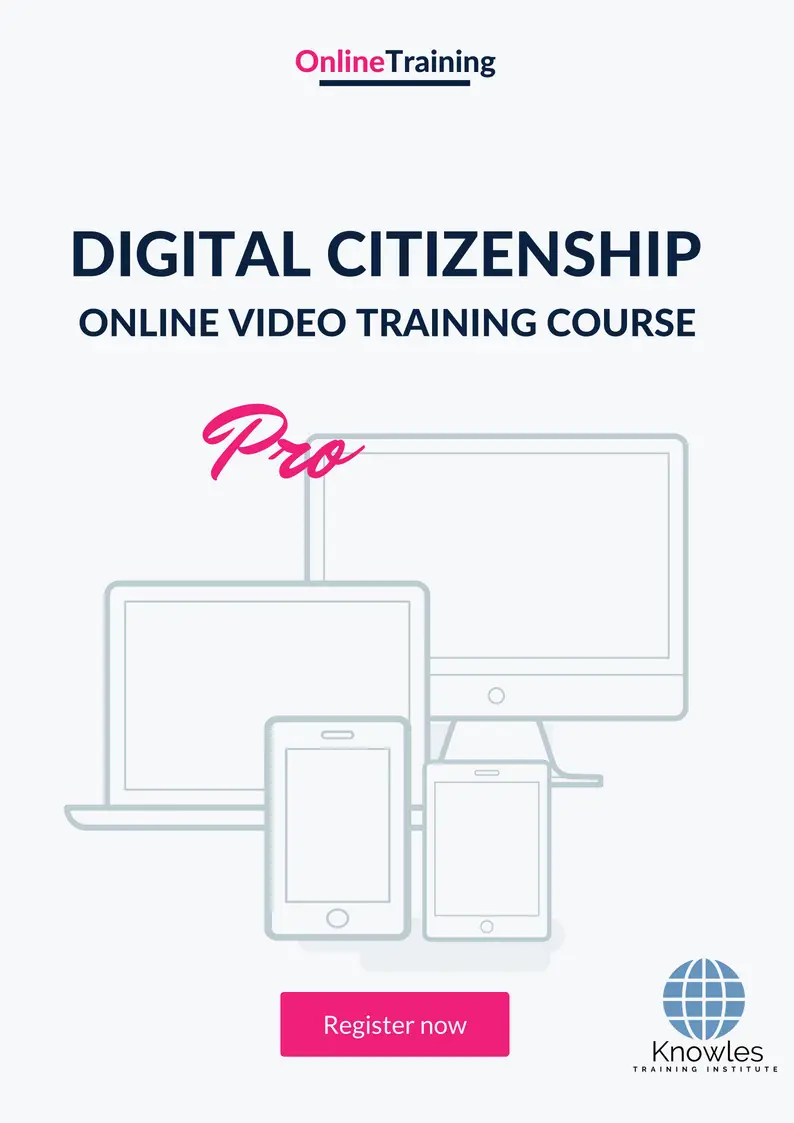
Digital Citizenship Essentials Audiobook
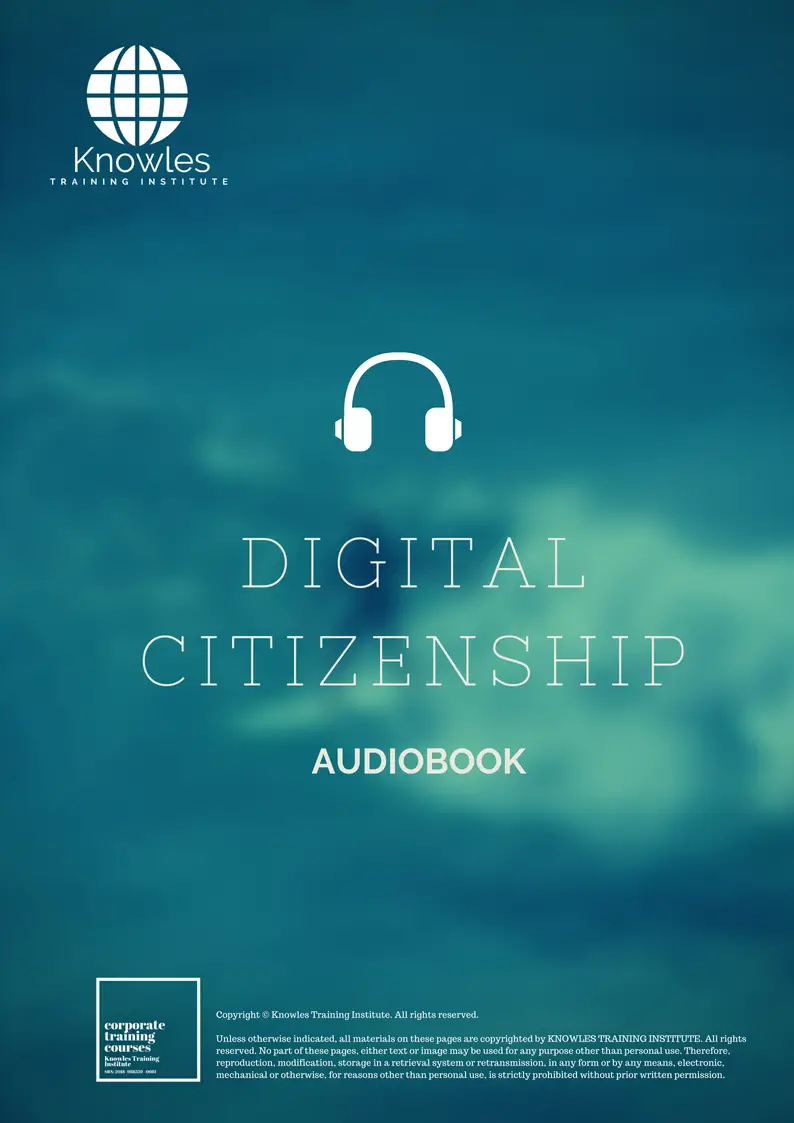
Digital Citizenship Infographics Pack
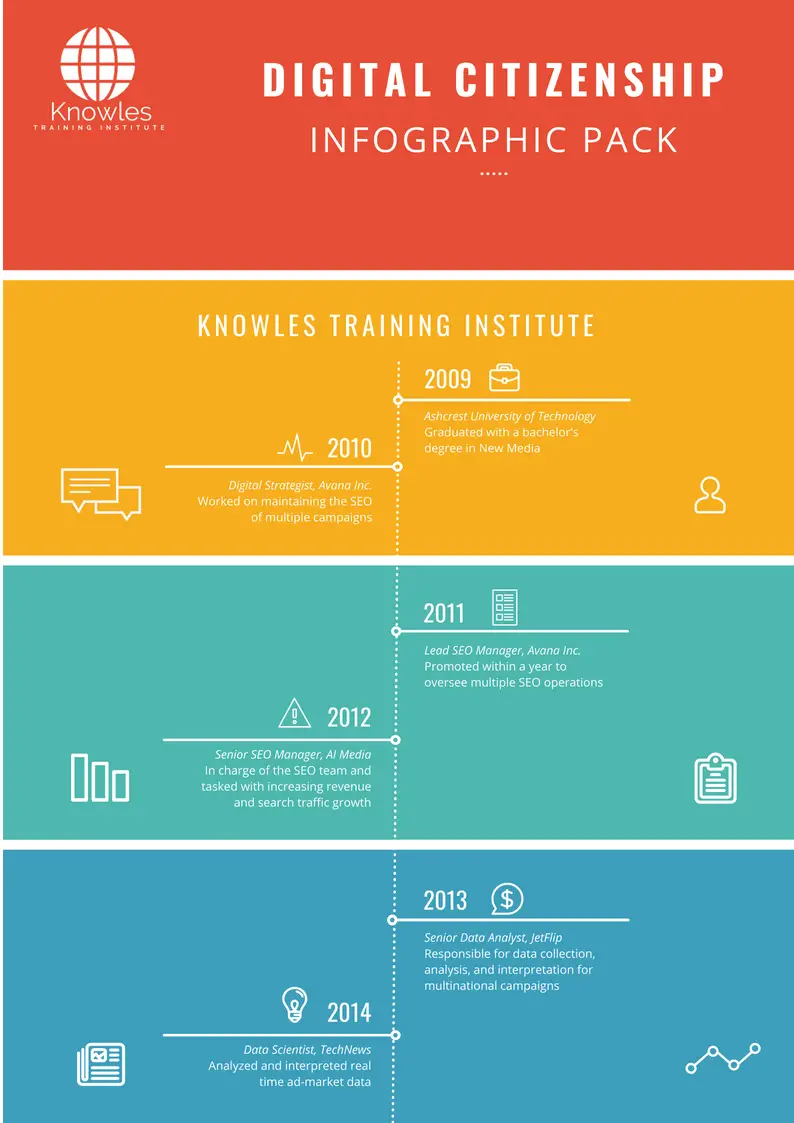
Digital Citizenship Certification
Each course participant will receive a certification of training completion
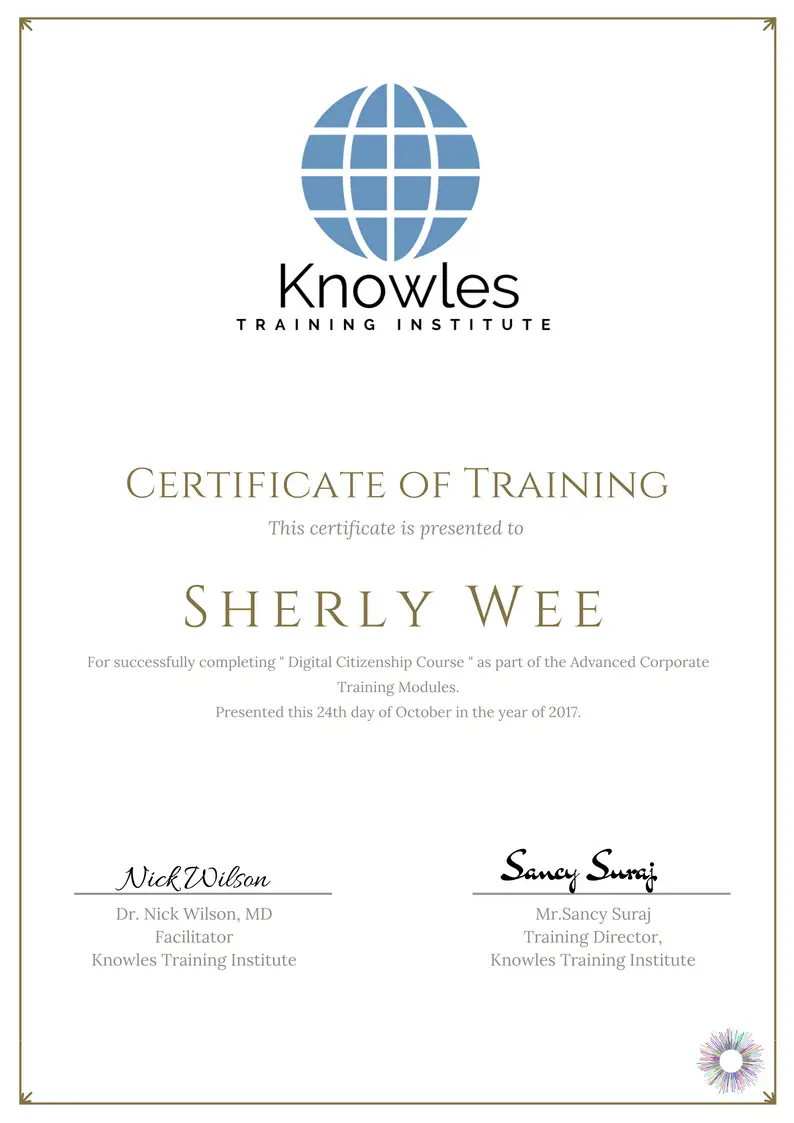
Course Fees
There are 3 pricing options available for this Digital Citizenship training course. Course participants not in Singapore may choose to sign up for our online Digital Citizenship training course.
SGD 1,334.96 For a 60-minute Lunch Talk Session.
SGD 584.96 For Half Day Course Per Participant.
SGD 884.96 For 1 Day Course Per Participant.
SGD 1,184.96 For 2 Day Course Per Participant.
Discounts available for more than 2 participants.
Course Discounts, Fundings & Subsidies
We have the following discounts, fundings & subsidies for this Digital Citizenship training course

Upcoming Digital Citizenship Training Course Schedule
Contact us for the latest Digital Citizenship course schedules:
Phone: +65 6714 6663
Email: contact@knowlesti.com
Message:
Download Digital Citizenship Course Brochure
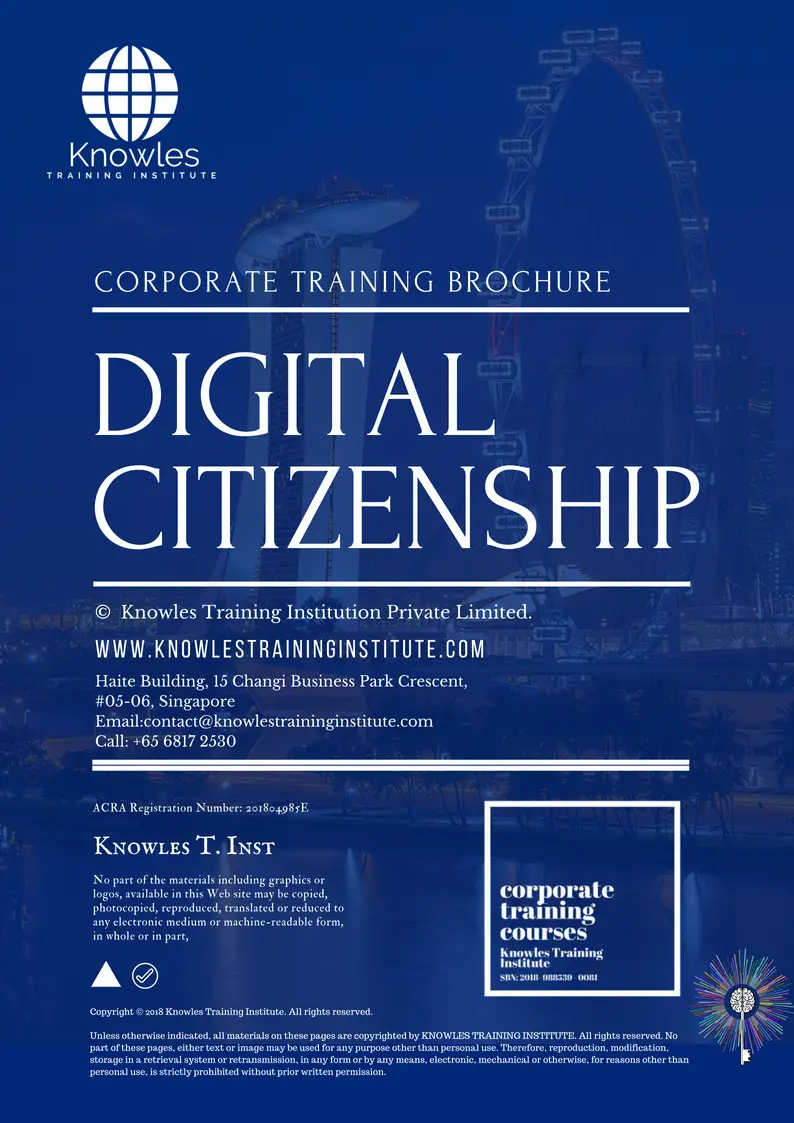
Request for this Digital Citizenship course brochure. Fill up the short information below and we will send it to you right away!
Post-Training Support: A vast majority of training does not have any effect beyond 120 days. But to work, training has to have a strong pre- and post-training component. Post-training reinforcement consequently helps individuals to recall the understanding and ask questions.
Blended Learning: Learning does not occur in the classroom. Virtually everybody prefers distinct ways of learning. Successful learning should have a multi-channel, multi-modal strategy.
We Understand The Industry: Similarly, we’ve got a profound comprehension of the business, business design, challenges, strategy and the that our participants are in and have designed the courseware to cater to their professional needs.
Course Content: Knowles Training Institute’s material is relevant, of high quality and provide specific learning outputs. As a result, Participants will leave the training course feeling as they have gained a strong understanding and will also be in a position to execute what they have learned sensibly.
Course Development — The workshop modules follow a systematic and logical arrangement. Therefore, this structure helps to ensure that the course material allows the facilitators to deliver the course in a logical arrangement. Consider the subjects as building bricks into learning, our facilitators slowly build towards a comprehensive picture of this entire topic.


Course Enquiries

Fill up the form and we will get back to you in less than 1 working day.
Alternatively, give us a call to have one of our training consultants contact you. Our corporate training courses can be contextualized to meet your organization’s training needs. Leverage on our large pool of professional trainers and consultants for your organization’s training needs.
Office Address: 60 Paya Lebar Rd, #07-54 Paya Lebar Square, Singapore 409051
Office Phone: +65 6714 6663
Email: contact@knowlesti.sg
We Guarantee 100% Privacy. We Respect Your Privacy. Your Information Will Never Be Shared.


